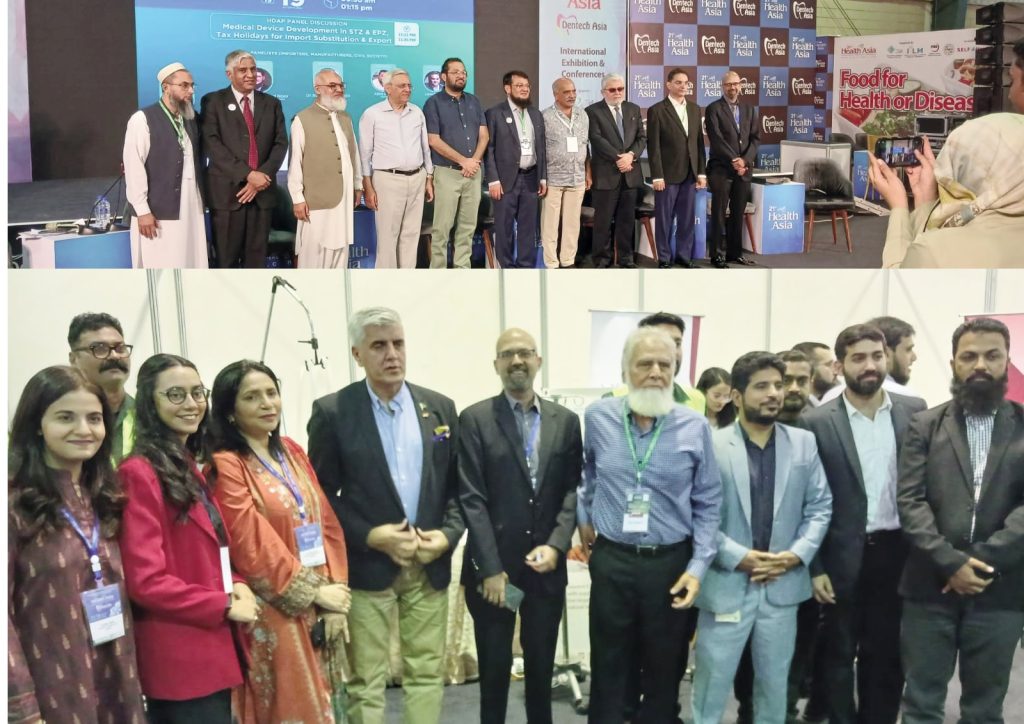
Pakistani companies have made notable progress in developing and manufacturing medical devices and equipment. This advancement could reduce the import bill by $2 billion within the next five years and generate foreign exchange by exporting technological items to various countries, said Zubair Motiwala, the CEO of the Trade Development Authority of Pakistan.
“Items such as ventilators, dialysis machines, and cardiac stents, previously unavailable in Pakistan, are now being manufactured locally. We believe this development will not only reduce reliance on imported medical equipment but also help Pakistan significantly cut its health sector import bill by $2 billion in the next five years,” Motiwala said while speaking at the 21st Health Asia exhibition held at Karachi’s Expo Centre last week.
Motiwala added that Pakistani companies have established export networks worldwide for surgical items and pharmaceutical products and that exports of medical devices and equipment could be enhanced through collaborative efforts among all stakeholders.
Manufacturing medical devices is a sophisticated specialty; thus, exporting these items requires a greater level of testing and standardization before marketing them in the international market. Pakistan has great potential in various fields that can be actualized through realistic efforts, such as achieving export values of $5 to $8 billion through agro-based products.
Chairman of the Samane Shifa Foundation, Dr. Syed Shahid Noor, stated that Pakistan is capable of producing nuclear technology and military aircraft, and has now developed medical devices for local hospitals to ensure affordable healthcare for the masses. More than ten devices, including ventilators and cardiac stimulators, have been made locally, and over 20 devices are in the pipeline.
He mentioned that the global market for medical devices and equipment is valued at approximately Rs. 1 trillion. If Pakistan can capture just 1% of the worldwide market, it could significantly support the national economy.
Dr. Noor urged the government to incentivize this sector with a comprehensive policy aimed at reducing the country’s current account deficit. He suggested introducing investor-friendly policies based on recommendations from all stakeholders. Additionally, he stated that duties on raw materials should be reduced or waived, and that both government and private sector hospitals should be encouraged to procure DRAP-approved, made-in-Pakistan products.
Syed Omar Ahmed, Chairman of the Healthcare Devices Association of Pakistan (HDAP), argued that medical device importers have the potential to become manufacturers due to their established sales distribution networks and knowledge of the sector. However, he emphasized that the government should develop policies to attract both foreign and local investment through a level playing field. He pointed out that 98% of medical devices in Pakistan are imported, and since margins in this business depend on volume, the government should rationalize the tax structure in this sector. A strong political will is needed to promote the emerging medical device industry through supportive policies, interventions, and incentives, fostering both import substitution and the export of medical equipment.
